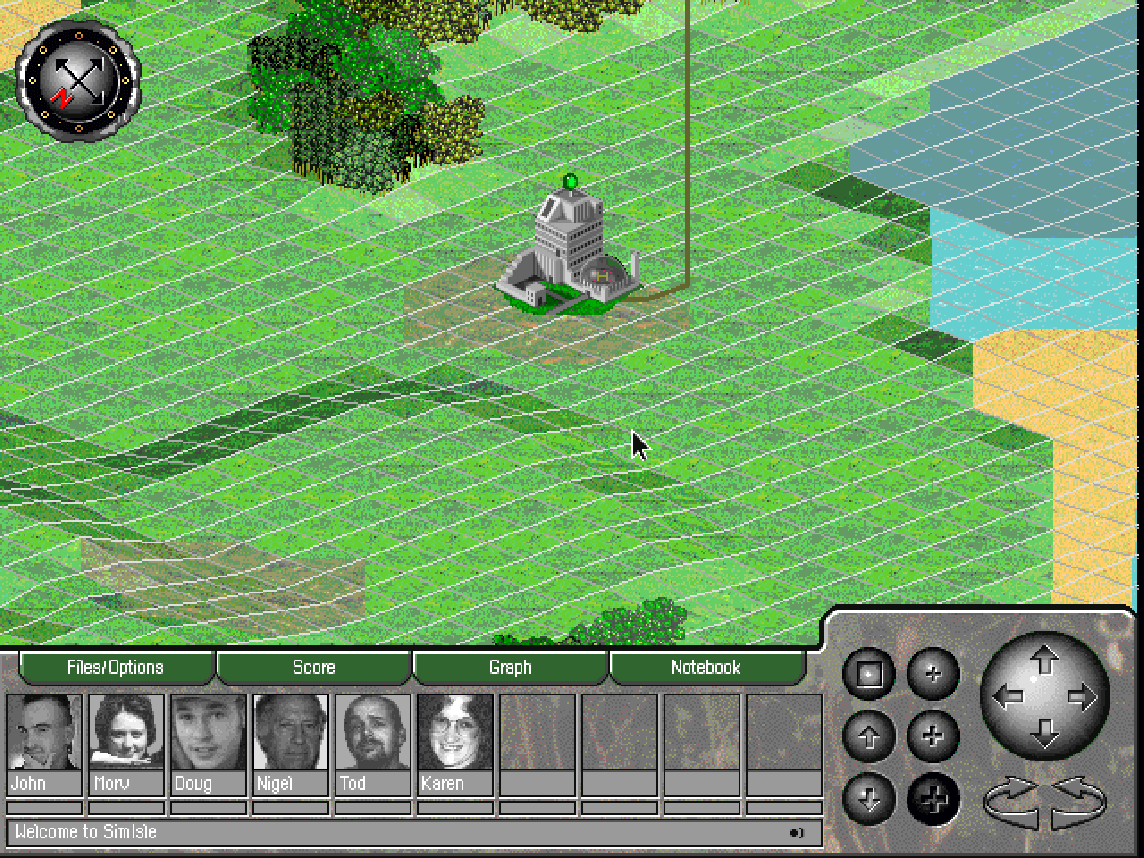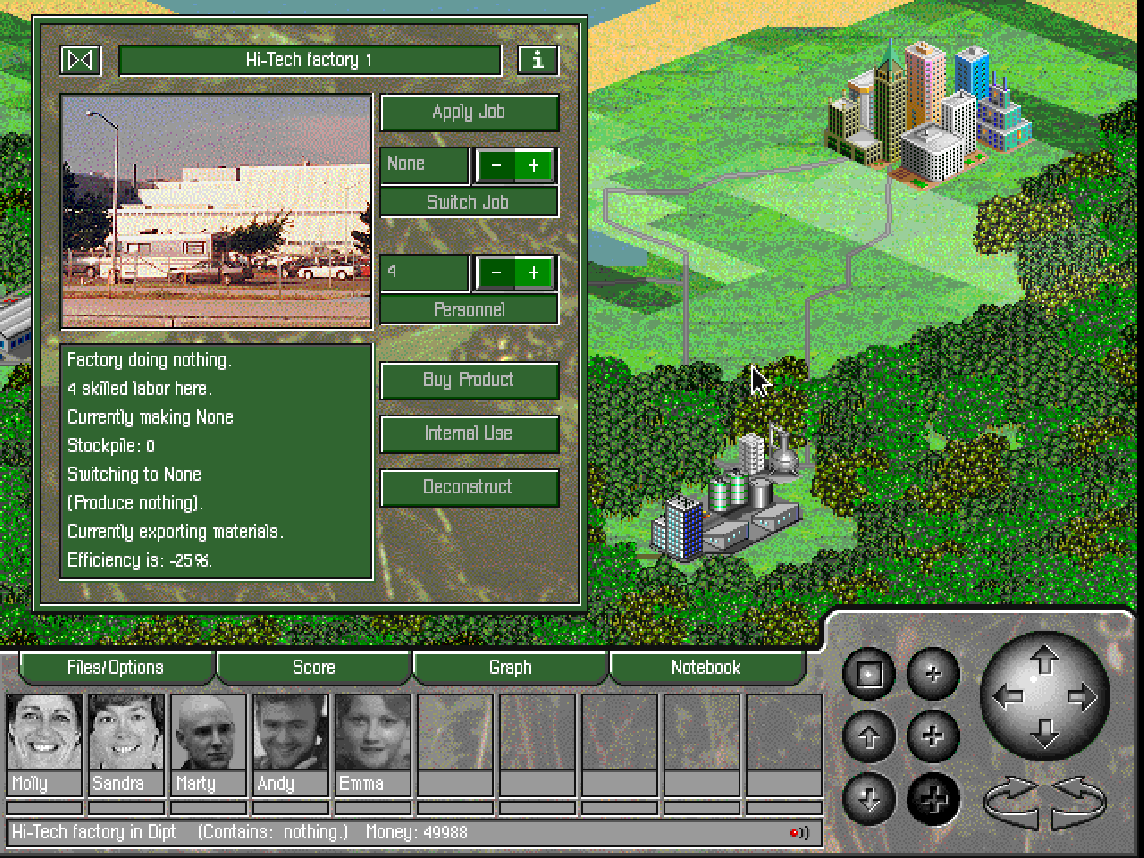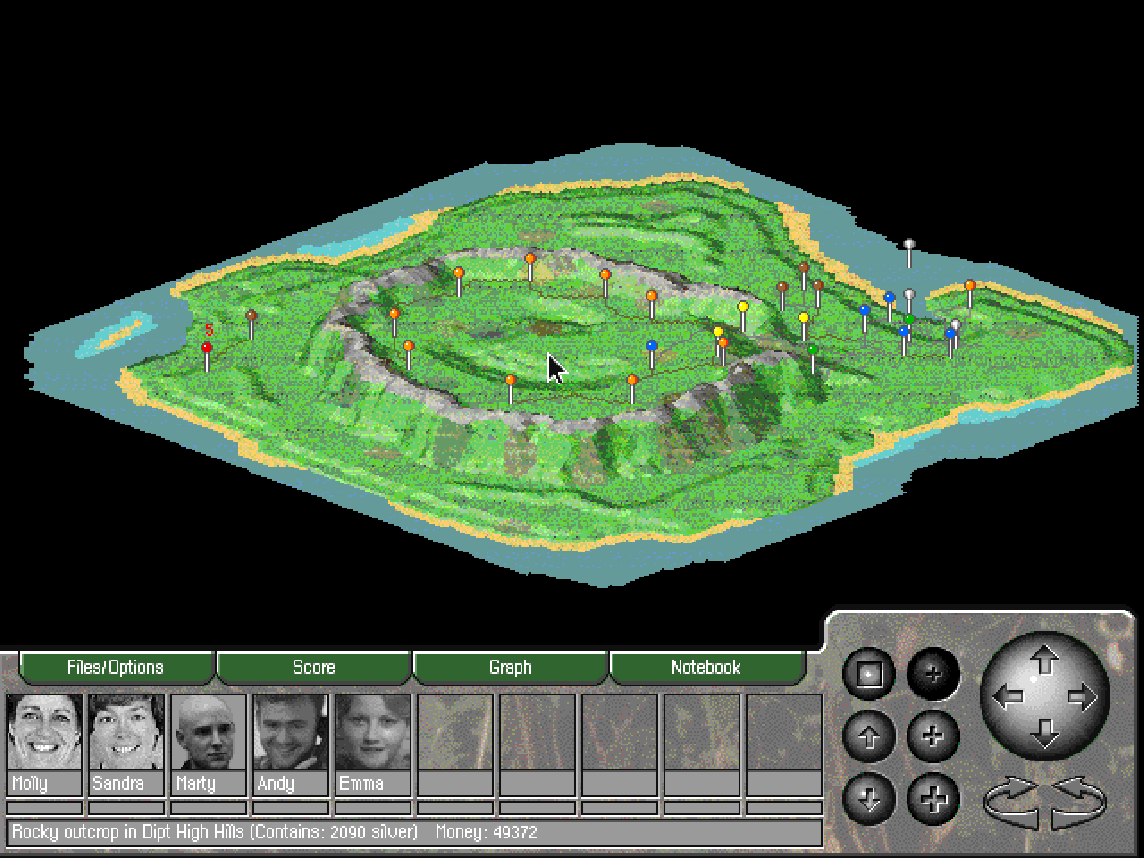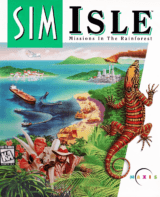Welcome to world of SimIsle: Missions in the Rainforest, a construction and management simulation game that promises an adventure like no other. Published by Maxis in 1995, this unique title, often referred to as a “software toy,” embraces Maxis‘ philosophy of blending fun and education seamlessly.
Exploring the Tropical Archipelago
In SimIsle, you embark on a journey to manage a tropical archipelago consisting of several dozen fictional islands, each with its own distinct characteristics. These islands vary in size, shape, terrain, natural resources, and indigenous populations. As a player, you have the freedom to choose the island that captures your imagination.
Each scenario presents you with specific objectives and win/lose conditions, offering a range of challenges to tackle. You can opt to start with scenario objectives enabled or dive into free-form simulation after successfully completing the initial tasks.
The game engine may remind you of SimCity 2000, with isometrically projected maps that can be rotated in 90° intervals. However, SimIsle elevates the terrain graphics to a whole new level, immersing you in a visually stunning rainforest paradise.

A Unique Approach to Management
Unlike other Maxis titles where player actions are executed instantaneously, SimIsle introduces a novel approach. Instead of directly placing buildings and structures, you engage intermediary agents with varying skills and profiles.
These agents handle the execution of your projects and take different amounts of time to complete each task.
Managing Your Human Resources
Your team of agents operates from the Agent HQ, a facility available on every map. While each island comes with a selection of pre-assigned agents, you have the flexibility to hire additional agents to suit your needs. Furthermore, you can train and even dismiss agents directly from the Agent HQ.
Agents typically possess two skills, including Construction, Industry, Flora and Forestry, Exploration, Local Culture, Negotiation, Employment, or Criminal Contacts. Some assignments may demand multiple skills, requiring the collaboration of two or more agents.
The skill set of an agent also dictates their movement capabilities on the map. For instance, agents with “Exploration” skills can venture into jungle areas and unearth hidden treasures.
While it’s not possible to train agents in new skills, their existing skills can be honed to enhance their effectiveness.

Balancing the Ecological Monetary Unit (EMU)
In the world of SimIsle, the currency of choice is the Ecological Monetary Unit (EMU). Each island harbors deposits of natural resources like lumber, coal, gold, iron, and oil. You can tap into these resources by establishing appropriate facilities, such as mines, logging camps, or oil rigs, on resource-rich tiles.
Once operational, these facilities autonomously extract and produce the specified resources, influenced by factors like deposit richness.
Uncover the Secrets of the Rainforest
To sustain your operations, you rely on food and unskilled labor provided by native villages scattered across the islands. Initially, these villages have small populations, producing just enough food for their inhabitants. However, agents with the right skills can be dispatched to these villages for training, increasing their food production capacity and population.
The surplus food generated can then support the growth of towns and cities built by you. These urban centers, in turn, provide access to skilled labor. It’s important to note that the happiness of the native population can be affected by environmental factors and the influx of unskilled labor.
Unhappy villages may resort to illegal activities like narcotics production, which can be harnessed for profit through agents with Criminal Contacts skills.
The Complex Web of Economics
Constructing most extraction facilities necessitates unskilled labor. Subsequently, you can establish facilities for producing lower-tier goods, which can be sold for profit, used within cities, or incorporated into the supply chain for crafting higher-end products. Roads are automatically constructed to connect these various facilities in the supply chain.
An AI system manages the distribution of resources, posing a challenge in balancing supply and demand. While you can purchase equipment and goods for immediate use, manual intervention is essential for long-term sustainability.
Neglected facilities can become costly liabilities. Additionally, most resource deposits are finite, meaning that perpetual player involvement is required to maintain a functioning supply chain.

Embracing Tourism
SimIsle presents the opportunity to boost your island’s economy through tourism. By establishing facilities like airports and ferries, you can attract tourists to your paradise. These tourists operate similarly to other resource facilities, with the key difference being that they return after their “use” is complete.
To further capitalize on tourism, you can upgrade tourist accommodations in terms of size and quality, generating income in the process. Tourists will flock to visit attractions, either built by you or discovered in the jungle using agents with exploration skills.
Attractions not constructed by the player must be made accessible to the public and upgraded to maximize their effectiveness in drawing tourists.
Conclusion
SimIsle: Missions in the Rainforest delivers an immersive and intellectually stimulating gaming experience. It challenges your management skills, ecological awareness, and economic acumen while inviting you to explore the breathtaking beauty of a virtual rainforest paradise.
Are you up for the challenge?
Play SimIsle online
Now you can play SimIsle online, in a web browser.

